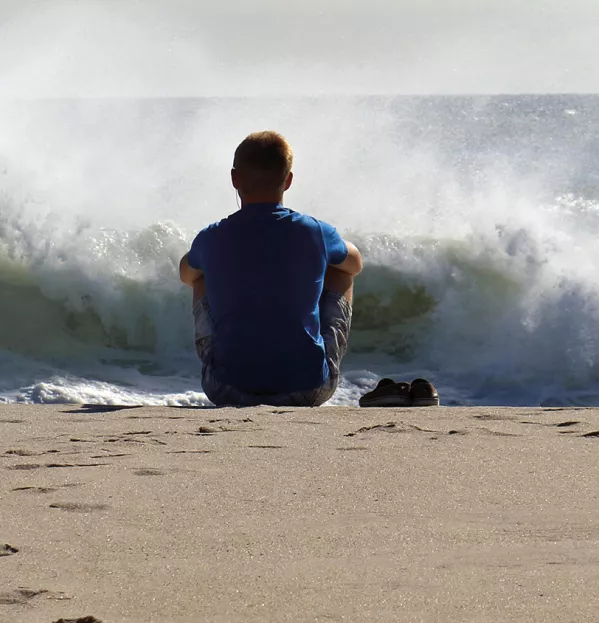- Home
- Teaching & Learning
- General
- Taking a break is essential for our mental health
Taking a break is essential for our mental health

In times of stress, I go to the beach. The vastness of the sea is a reliable bringer of perspective. It forces me to pause and bring my fight-or-flight response under control. Soon enough, I can see more clearly what my mind was inflating into a crisis. Usually, it’s not nearly as bad as I feared.
I wonder how far teachers - and even the Department for Education - are being permitted these moments of reset.
The pressure of catch-up is on and the DfE is churning out the interventions and systems to fix all education’s supposed ills: the long-awaited rollout of behaviour hubs, flexible-working lead schools, a catch-up resources contract, pupil premium changes, anti-bullying schemes - the list is endless (take a look at the Twitter threads our reporters post each evening for proof). The impression is of a government frantically trying to be seen to be doing something - anything - to mitigate the effects of the pandemic.
Schools are dealing with all this while also managing pressure from parents, trying to work out exactly where the pupils are in their learning and addressing any pastoral or safeguarding issues that may have arisen. They, too, need to be seen to be “doing something” and doing it as fast as possible.
The situation presents a number of problems.
First, it is unlikely amid all this noise that accurate identification of the more urgent issues will be possible: triage in a crisis requires calm detachment. There is a common analogy made that those who support others need to put their own oxygen mask on first. The DfE has not allowed itself time to breathe, and as a result, those in schools have not been afforded that opportunity either.
Covid and schools: Teacher wellbeing at risk
The second - connected - issue is that poor identification is likely to be followed by poor implementation. Identifying a need for change is only half the battle; to really make a difference, you need the time to move through an iterative process of sense testing both the reality of the problem at hand and the potential solutions. That involves speaking to colleagues, parents, pupils, and other professionals and really getting under the skin of what the problem might be and how it might best be tackled - then rigorously testing that model to see if you are right before committing too much resource to it. That takes time - and no one seems willing to grant it.
And thirdly, there is, of course, a human cost to this. Unless we enable schools to de-escalate and pause, wellbeing will be severely impacted. Irritation, tiredness, a tendency towards catastrophising, a retreat to entrenched positions - all this and more will become more common and education and educators will suffer.
Clearly, it is difficult to pause. The DfE is under huge pressure to look active - it’s not easy to spin a “wait and see” message to the masses and come out of it well. Similarly, explaining to Ofsted or parents that your school is taking things slow would require a brave headteacher.
The cultural impetus, too, is not helping. We want our lives back and we are in a rush to get to that point as quickly as we can. There is a belief, it seems, that as soon as we wipe out the effects of the pandemic then the experience of it will be banished from our consciousness, too.
I often fail to take the time I need, even without the pandemic as a cause. When you are in the suffocating grip of stress, pausing seems to be the last thing you can afford to do. Usually, it requires a critical friend to intervene. They spot the signs, they force a retreat, they instigate a change in you - and you often fight them every step of the way. Only afterwards can you see the reality that pausing was the very thing you needed, that you are better for it, that the world only now makes sense.
Pupils, school staff, parents, those at the DfE - they all need that friend right now, that push to the beach to reset out of the chaos.
This article originally appeared in the 23 April 2021 issue under the headline “Pausing feels impossible, but it’s vital for post-pandemic wellbeing”
You need a Tes subscription to read this article
Subscribe now to read this article and get other subscriber-only content:
- Unlimited access to all Tes magazine content
- Exclusive subscriber-only stories
- Award-winning email newsletters
Already a subscriber? Log in
You need a subscription to read this article
Subscribe now to read this article and get other subscriber-only content, including:
- Unlimited access to all Tes magazine content
- Exclusive subscriber-only stories
- Award-winning email newsletters



